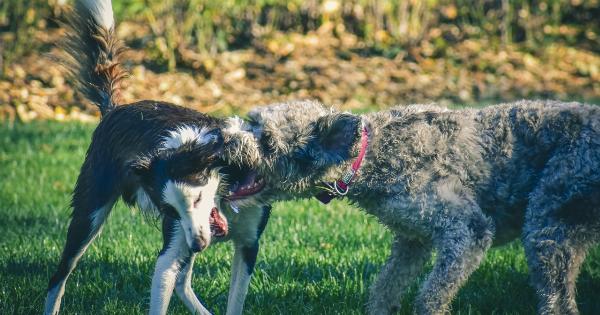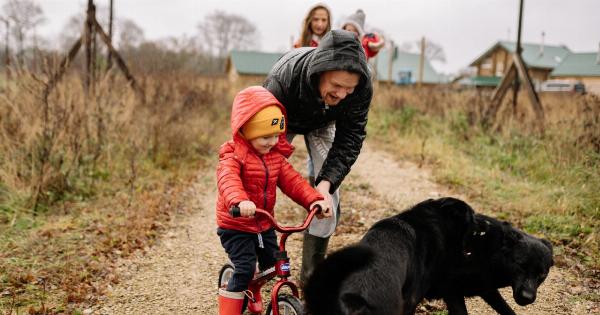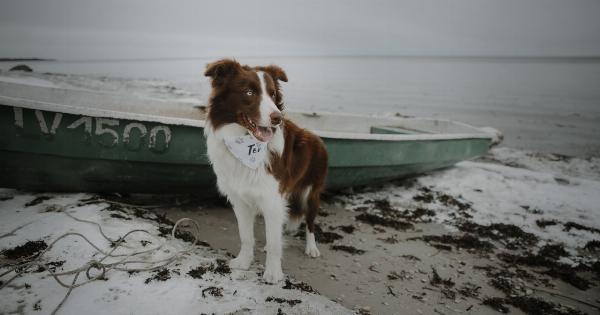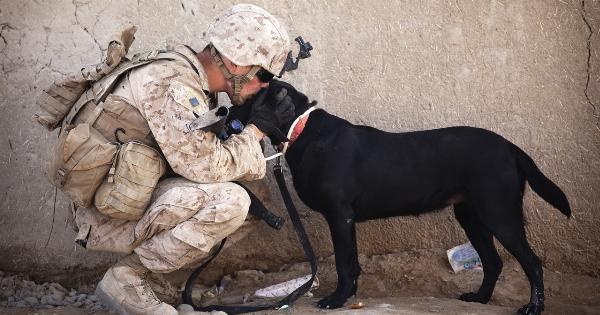A healthy and balanced diet is crucial for the growth and development of your beloved canine companion. Just like humans, dogs go through various stages of life that require specific nutritional requirements.
It is important to monitor your dog’s growth and adjust their diet accordingly to ensure they receive the necessary nutrients for proper development. Here are some signs that indicate your dog’s diet may need to change due to growth:.
1. Rapid Weight Gain or Loss
One of the most evident signs that your dog’s diet needs to be modified is a sudden and significant weight change. Growing puppies require more calories than adult dogs, but it’s crucial to strike the right balance.
If your puppy is gaining weight excessively or becoming overweight, it may be a sign that their diet needs adjustment. On the other hand, noticeable weight loss or failure to gain weight can be indicative of nutritional deficiencies, warranting a change in their diet.
2. Lack of Energy
If your dog is lacking energy or seems lethargic, it may be a sign that their current diet is not providing them with adequate nutrients to support their growth.
Dogs, especially puppies, need proper nutrition to fuel their active lifestyles and maintain optimal health. If your normally energetic puppy becomes less active or seems tired all the time, it could be time to reevaluate their diet.
3. Dull Coat and Skin Issues
A shiny and healthy coat is an indication of a well-nourished dog. If your dog’s coat appears dull, dry, or lacks luster, it may be a sign of nutritional deficiencies.
Similarly, skin issues such as dryness, itchiness, or excessive shedding can also be linked to an inadequate diet. Adjusting their diet to incorporate essential fatty acids and nutrients can help improve their coat and overall skin health.
4. Digestive Issues
Frequent digestive issues, such as diarrhea, constipation, or excessive gas, can be an indication that your dog’s diet is not suitable for their growth stage.
These issues can arise from an improper balance of nutrients or ingredients that don’t agree with your dog’s digestive system. Switching to a diet that supports healthy digestion can help alleviate these issues and promote better gastrointestinal health.
5. Stunted Growth
Inadequate nutrition can lead to stunted growth in puppies. If your puppy is not reaching their expected size and stature according to their breed, it might be due to insufficient nutrients in their diet.
Proper nourishment during their growth phase plays a vital role in ensuring appropriate growth, so adjusting their diet to meet their specific nutritional needs is vital.
6. Excessive Hunger or Thirst
If your dog always appears to be hungry or thirsty despite receiving their usual portions, it can suggest that their current diet is not fulfilling their needs adequately.
Dogs in their growth stage have higher energy and nutritional requirements, and an insufficient diet can leave them feeling constantly hungry or thirsty. Consulting with a veterinarian and considering a diet change can help address this issue.
7. Joint and Bone Issues
Large-breed puppies, in particular, are prone to musculoskeletal issues like hip dysplasia or developmental bone problems. These conditions can be exacerbated by incorrect nutrition or an unbalanced diet during their growth period.
Providing a diet rich in joint-supporting nutrients, such as glucosamine and omega-3 fatty acids, can help support healthy bone and joint development.
8. Behavioral Changes
Changes in your dog’s behavior, such as increased irritability, aggression, or anxiety, can sometimes be linked to their diet. Nutritional deficiencies or imbalances can affect your dog’s mood and temperament.
Ensuring their diet contains appropriate levels of essential amino acids and vitamins can help promote a stable and balanced behavior.
9. Dental Health Issues
Poor diet can also impact your dog’s oral health. Improper nutrition can lead to dental problems such as tartar buildup, gum disease, or tooth decay.
For optimal dental health, it is crucial to provide your dog with a diet that includes dental-friendly ingredients or consider incorporating dental treats or chews into their routine.
10. Slow Recovery from Illness or Surgery
If your dog takes longer than usual to recover from an illness, injury, or surgery, it may indicate a weakened immune system or insufficient nutrients in their diet.
Proper nutrition plays a significant role in supporting the immune system and aiding the healing process. Consult with your veterinarian about switching to a diet that promotes a stronger immune response and faster recovery.
Conclusion
Monitoring your dog’s growth and recognizing the signs that their diet needs to change is vital for their overall health and well-being.
Remember, always consult with a veterinarian before making any significant dietary changes for your furry friend. By providing them with a well-balanced and nutrient-rich diet tailored to their specific growth needs, you can ensure they continue to thrive throughout their life.































